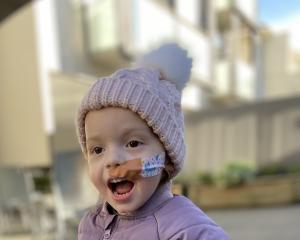More restrictions on gaming machines are needed in the Waitaki district, the Southern District Health Board says, but five other organisations want them relaxed.
Six organisations gave submissions to a Waitaki District Council meeting yesterday in a review of its gambling and TAB venues policy.
The review proposes no changes.
About $1.5 million in grants from gaming machines was distributed in the district last year.
Board health promotion adviser Joanne Lee acknowledged proceeds from non-casino gaming machines benefited some community groups.
''However, it is the people who are most vulnerable in our communities that do not necessarily benefit from grants provided by this type of revenue,'' she said.
The health board wants:Non-replacement of machines when they are given up.
A ban on relocating machines.
A health impact assessment of gaming machines, conducted by the council.
A ban on TAB outlets having machines.
More restrictions on locations.
Waitaki has a cap of 20 gaming venues and 140 machines.
The cap might protect the community funding level but not those who sought help for gambling problems, Ms Lee said.
Nine people had sought help in the district in the past year, but not everyone did, she said.
More than 40% of money lost on gaming machines came from problem gamblers.
Waitaki had more machines for the population - 7.2 per 1000 people - than the national average of 3.9, she said.
Other submissions came from the Oamaru Club, New Zealand Racing Board, Lion Foundation, New Zealand Community Trust and Clubs New Zealand.
They focused on keeping the existing cap, allowing machines to be relocated and including provisions for club mergers.
The racing board wants the council to split its policy in two - one for gaming machines and the other for TAB venues - and to clarify machines are allowed in TAB outlets.
In 2003, Waitaki had 25 venues with 141 machines. Last year, it had 13 venues with 123 machines.
Racing board solicitor Jarrod True said gaming machines and the TAB were covered by two different Acts, and having both in one policy was ''a little bit clumsy''.
The policy was also confusing about whether machines were allowed in non-alcohol TAB venues, he said.
In one section it said they were, but another banned them by permitting them only in sporting or licenced premises.
The board wants machines in its venues.
Oamaru Club representative Trevor Williams said the present policy worked well for the community, ratepayers and clubs.
Most of the profits went to sports and welfare groups within the club, but grants were also made to outside organisations.
The submissions will be considered along with the draft policy for a final decision on December 3.














